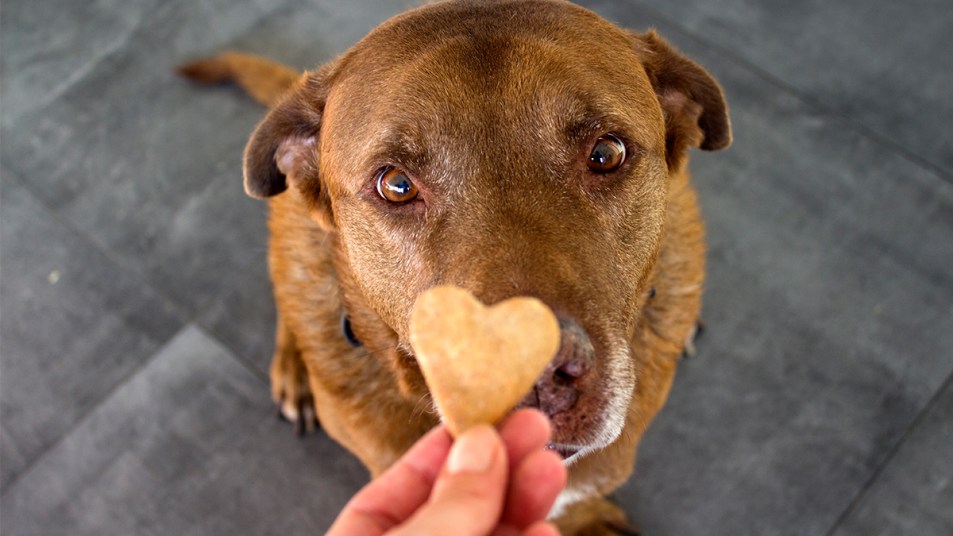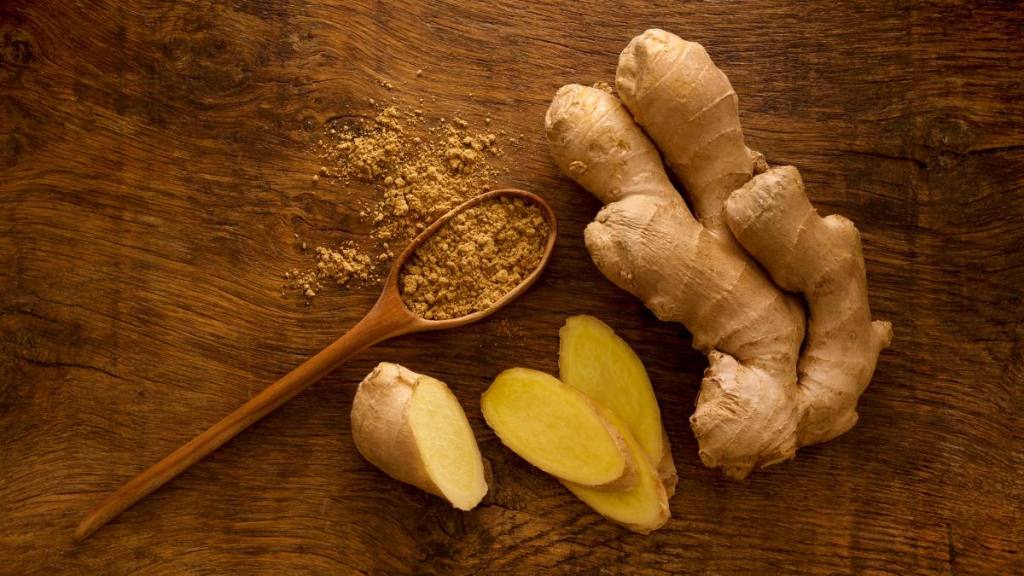Ginger for Dogs: Vets on What You Need to Know Before Feeding the Spice to Your Pup
Plus, a vet-approved recipe for ginger-spiced dog cookies

You’ve probably heard that consuming ginger can be beneficial for your own health and well-being. So you may have wondered if it’s safe to give ginger to your dog. After all, besides enhancing the flavor of various culinary dishes, the spice has anti-inflammatory and antioxidant properties. In fact, research shows consuming ginger delivers a host of benefits for humans: It can relieve nausea and vomiting due to motion sickness, pregnancy, or chemotherapy. It can also improve gastrointestinal function, menstrual cramps, low back pain and pain from osteoarthritis. It’s even been shown to improve blood sugar and insulin sensitivity in humans. So what about ginger for dogs? Are there similar benefits? We asked veterinarians and other experts. Read on for their advice.
Is ginger for dogs safe?

The short and simple answer is yes but there are caveats. For one thing, ginger should be given in small amounts because “too much ginger can cause stomach upset in dogs,” says Tina Wismer, DVM, MS, DABVT, senior director of the ASPCA Animal Poison Control Center.
Also, dogs that are pregnant or nursing or who have bleeding disorders or gallbladder disease should avoid ginger, says Carol Osborne, DVM, an integrative veterinarian in Chagrin Falls, Ohio, and founder of the Chagrin Falls Pet Clinic. “Ginger or any other herb could have potential adverse effects in unborn puppies or enter the milk of a nursing dog.” And because ginger increases circulation, it could cause bleeding problems in dogs with these disorders.
The benefits of ginger for dogs
When given in appropriate amounts, ginger can be beneficial to a dog’s health and well-being. Here are a few of perks:
Ginger eases GI upset for dogs
“Ginger has proven to be effective in people and dogs to help relieve nausea and vomiting as well as motion sickness for traveling canines,” says Dr. Osborne. “It also fights inflammation, has antioxidant properties, boosts circulation and enhances memory.”
Ginger helps dogs heal after surgery
While less research has been conducted on the effects of ginger on our canine companions than on humans, some studies have shown that ginger can ease various ailments that affect dogs. For example, research published in a 2021 issue of the Iranian Journal of Veterinary Surgery found that dogs that were given an oral ginger capsule before being surgically neutered and daily for 10 days after the procedure had reduced inflammatory reactions to the surgery compared to dogs in a control group.
Ginger eases stress for dogs
By contrast, a study in a 2018 issue of the journal Applied Animal Behaviour Science found that shelter dogs who were exposed to the scent of ginger or coconut had reduced barking behavior and agitated movements and they slept more than dogs exposed to other scents. In other words, the scent of ginger had a calming effect on the pups in what is naturally a stressful environment.
How to give your dog ginger
It’s safe to give a dog small amounts of ginger from a powder, capsule, tincture, tablet or as the grated fresh root, Dr. Osborne says. If you add a dash of dried ginger to your dog’s food, be sure to mix it in thoroughly so your dog won’t inhale the fine powder. And if you’re eating a ginger snap cookie, there’s no harm in giving your dog a small piece.
But avoid giving your dog candied ginger or ginger ale because these are high in sugar. Also, don’t give pickled ginger to your pup because it contains salt that your dog doesn’t need, as well as vinegar or citric acid, which your dog won’t appreciate, according to the American Kennel Club.
To stay on the safe side, Dr. Wismer says you can give a dog that weighs up to 10 pounds ¼ teaspoon of fresh ginger (chopped into small bits or grated) mixed into their food. Pups that weigh between 10 and 35 pounds can have ½ teaspoon; those above 35 pounds can have ¾ teaspoon of the aromatic spice. If you’re using powdered ginger, cut those amounts in half.
If you want to make your pup a tasty homemade treat, here’s a recipe for pumpkin-ginger spice cookies for dogs, from Dr. Carol Osborne.
Pumpkin-Ginger Spice Canine Cookies
Ingredients
- 4 cups whole wheat flour
- ¾ tsp. ground ginger
- ¾ cup mashed pumpkin (use either fresh or canned pumpkin, not canned pumpkin pie mix, which may contain nutmeg, allspice and cloves)
- 2 medium eggs, beaten
- 1 ¼ Tbs. coconut oil, melted
- Approximately ½ cup water
Instructions
- Preheat the oven to 275° F. Use cooking spray or coconut oil to grease then flour a baking sheet.
- In a large mixing bowl, stir together ginger, mashed pumpkin, eggs and melted coconut oil. Mix in flour then slowly add just enough water until a dough is formed that isn’t sticky.
- Use a rolling pin to roll the batter onto the baking sheet until it’s about ¼-inch thick. You can bake it as it is and break it up after baking or use shaped cookie cutters to create individual cookies before baking.
- Bake at 275° for approximately 30 to 45 minutes, until the cookies are set. Cool completely on a wire rack before giving them to your dog.
Herbs and spices to keep away from your dog

When it comes to potentially dangerous spices, “the dose determines the poison,” Dr. Wismer says. So while a tiny amount may not cause harm to your dog, larger quantities can be toxic. That’s why it’s important to err on the side of caution — and avoid giving your dog nutmeg, pumpkin spice (a blend of cinnamon, ginger, nutmeg, allspice, and cloves), chives, paprika, marjoram, onion, garlic, cocoa powder, mint, and bay leaves. These could make your dog seriously sick. If you have any questions about what’s safe (or not) to feed your dog, contact your veterinarian, Dr. Osborne says.
For more dog tips, click through the links below!
Can Dogs Eat White Chocolate? Vets Reveal What You Need to Know to Keep Pups Safe
Is Turkey Safe For Dogs? Vets Weigh In On What Feast Foods Are Okay To Share
Can Dogs Eat Raw Carrots? Vets Reveal the Fruits and Veggies That Are Good for Pups
















